More to explore
-

-

-

-

-
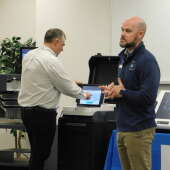 Local News 5/11/24Cape Girardeau County election officials, public view voting machine demonstrations4Three election equipment companies made their pitches to both members of the public and Cape Girardeau County's election team as to why they should choose their voting machines for upcoming elections.
Local News 5/11/24Cape Girardeau County election officials, public view voting machine demonstrations4Three election equipment companies made their pitches to both members of the public and Cape Girardeau County's election team as to why they should choose their voting machines for upcoming elections. -
 Local News 5/11/24Cape Girardeau Parks and Recreation to operate Visit Cape starting at the end of June 302The City of Cape Girardeau has negotiated the terms of its contract with the Cape Girardeau Area Chamber of Commerce to operate the Convention and Visitor’s Bureau/Visit Cape. The Parks and Recreation Department will now operate the bureau starting...
Local News 5/11/24Cape Girardeau Parks and Recreation to operate Visit Cape starting at the end of June 302The City of Cape Girardeau has negotiated the terms of its contract with the Cape Girardeau Area Chamber of Commerce to operate the Convention and Visitor’s Bureau/Visit Cape. The Parks and Recreation Department will now operate the bureau starting... -
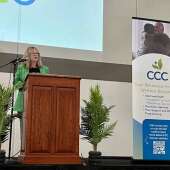 Local News 5/11/24CCC unveils new branding during 50-year anniversary celebratory luncheonsCommunity Counseling Center celebrated its 50th anniversary with a commemorative luncheon on Friday, May 10, at the Jackson Civic Center, along with an unveiling of the organization’s rebranding. CCC held luncheons throughout the week at each of the...
Local News 5/11/24CCC unveils new branding during 50-year anniversary celebratory luncheonsCommunity Counseling Center celebrated its 50th anniversary with a commemorative luncheon on Friday, May 10, at the Jackson Civic Center, along with an unveiling of the organization’s rebranding. CCC held luncheons throughout the week at each of the... -

-
 Local News 5/10/24Judge denies request for cameras in the courtroom to cover coroner's criminal hearing3A judge has denied a request to allow cameras or recording equipment in the courtroom as the Cape Girardeau County coroner faces criminal charges. KFVS anchor and media coordinator for the 32nd Circuit Kathy Sweeney had asked in March, per the rules...
Local News 5/10/24Judge denies request for cameras in the courtroom to cover coroner's criminal hearing3A judge has denied a request to allow cameras or recording equipment in the courtroom as the Cape Girardeau County coroner faces criminal charges. KFVS anchor and media coordinator for the 32nd Circuit Kathy Sweeney had asked in March, per the rules... -
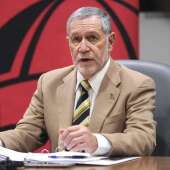 Local News 5/10/24Facing a nationwide trend, SEMO takes proactive steps against looming budget shortfalls15Amid universities around the country facing financial problems, largely impacted by lower enrollment numbers, Southeast Missouri State University is working to avoid potential budget issues that could arise in the near future. According to...
Local News 5/10/24Facing a nationwide trend, SEMO takes proactive steps against looming budget shortfalls15Amid universities around the country facing financial problems, largely impacted by lower enrollment numbers, Southeast Missouri State University is working to avoid potential budget issues that could arise in the near future. According to... -
 Local News 5/10/24Police investigation yields arrest of Illinois man, alleged meth seizureA Tamms, Illinois, man faces a Class C felony relating to drug delivery; a Class D felony of unlawful possession of a firearm and a Class E felony of unlawful use of a weapon following an investigation that resulted in two cases over a two-day...
Local News 5/10/24Police investigation yields arrest of Illinois man, alleged meth seizureA Tamms, Illinois, man faces a Class C felony relating to drug delivery; a Class D felony of unlawful possession of a firearm and a Class E felony of unlawful use of a weapon following an investigation that resulted in two cases over a two-day... -
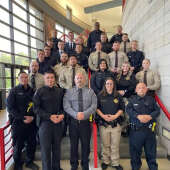 Local News 5/10/24SEMO's Law Enforcement Academy graduates 28 officersMore than two dozen Southeast Missouri State University Law Enforcement Academy graduates were honored with a ceremony Thursday, May 9, at the Show Me Center. Of the 28 graduates, 27 are taking jobs in Southeast Missouri, and one will begin their...
Local News 5/10/24SEMO's Law Enforcement Academy graduates 28 officersMore than two dozen Southeast Missouri State University Law Enforcement Academy graduates were honored with a ceremony Thursday, May 9, at the Show Me Center. Of the 28 graduates, 27 are taking jobs in Southeast Missouri, and one will begin their... -

-
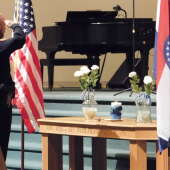
-

-

-

-

-
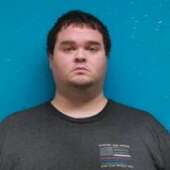 Local News 5/10/24Cape Girardeau man faces multiple counts of sexual abuse against child5Steven Brown, 32, of Cape Girardeau is being held in Cape Girardeau County jail in lieu of a $250,000 bond while he faces three counts of first-degree sodomy or attempted sodomy on a child less than 12 years old; one count of second-degree child...
Local News 5/10/24Cape Girardeau man faces multiple counts of sexual abuse against child5Steven Brown, 32, of Cape Girardeau is being held in Cape Girardeau County jail in lieu of a $250,000 bond while he faces three counts of first-degree sodomy or attempted sodomy on a child less than 12 years old; one count of second-degree child... -

-

-
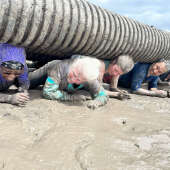 Local News 5/9/24Deceased Cape teacher serves as motivation for Tough Mudder competitor1Tough Mudder is a hardcore obstacle course designed to test participants’ all-around strength, stamina and mental grit, and runners must be at least 14 years old. Mildred Wilson has no problem meeting the criteria. Wilson, 85, was a spry 80 when she...
Local News 5/9/24Deceased Cape teacher serves as motivation for Tough Mudder competitor1Tough Mudder is a hardcore obstacle course designed to test participants’ all-around strength, stamina and mental grit, and runners must be at least 14 years old. Mildred Wilson has no problem meeting the criteria. Wilson, 85, was a spry 80 when she... -
 Local News 5/9/24City of Cape signs lease agreement for police substation on Good Hope10A lease agreement between the City of Cape Girardeau and not-for-profit organization Partners for Good Hope for a police substation at 629 Good Hope St. was approved by the City Council on Monday, May 6. According to the council’s agenda report, the...
Local News 5/9/24City of Cape signs lease agreement for police substation on Good Hope10A lease agreement between the City of Cape Girardeau and not-for-profit organization Partners for Good Hope for a police substation at 629 Good Hope St. was approved by the City Council on Monday, May 6. According to the council’s agenda report, the... -
 Local News 5/9/24Safe Harbor Animal Sanctuary to hold ground-breaking ceremony ThursdaySafe Harbor Animal Sanctuary will hold a groundbreaking ceremony for its new facility Thursday, May 9. The event will be at 10 a.m. at the organization’s location, 185 Cree Lane in Jackson. Plans call for the facility to be complete by January. Safe...
Local News 5/9/24Safe Harbor Animal Sanctuary to hold ground-breaking ceremony ThursdaySafe Harbor Animal Sanctuary will hold a groundbreaking ceremony for its new facility Thursday, May 9. The event will be at 10 a.m. at the organization’s location, 185 Cree Lane in Jackson. Plans call for the facility to be complete by January. Safe... -
 Local News 5/9/24Kiss in gas station parking lot leads to felony weapons charge, documents say10A Cape Girardeau man faces felony charges after police say he used a gun to shatter a victim’s driver’s-side car window. Adam Childers, 37, faces charges of second-degree property damage and unlawful use of a weapon (exhibiting), which is considered...
Local News 5/9/24Kiss in gas station parking lot leads to felony weapons charge, documents say10A Cape Girardeau man faces felony charges after police say he used a gun to shatter a victim’s driver’s-side car window. Adam Childers, 37, faces charges of second-degree property damage and unlawful use of a weapon (exhibiting), which is considered... -
 Local News 5/9/24Cape woman faces Class B felony after allegedly firing weapon during dispute with neighbor4Kylena Fleming, 37, of Cape Girardeau is being held on a $150,000 cash-only bond after police say she fired two bullets toward a victim and then tried to evade officers. Fleming was charged with unlawful use of a weapon, a Class B felony. ...
Local News 5/9/24Cape woman faces Class B felony after allegedly firing weapon during dispute with neighbor4Kylena Fleming, 37, of Cape Girardeau is being held on a $150,000 cash-only bond after police say she fired two bullets toward a victim and then tried to evade officers. Fleming was charged with unlawful use of a weapon, a Class B felony. ... -

-
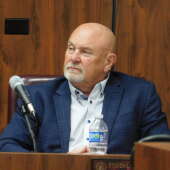
-

-
 Most read 5/7/24Cape Girardeau man arrested after allegedly hiding in attic while surrounded by policeA Cape Girardeau man is in jail on two $10,000 bonds after police say the man barricaded himself in an attic for more than an hour while surrounded by police. Jason S. Jones Sr., 44, was charged with the Class A misdemeanor of resisting/interfering...
Most read 5/7/24Cape Girardeau man arrested after allegedly hiding in attic while surrounded by policeA Cape Girardeau man is in jail on two $10,000 bonds after police say the man barricaded himself in an attic for more than an hour while surrounded by police. Jason S. Jones Sr., 44, was charged with the Class A misdemeanor of resisting/interfering... -


